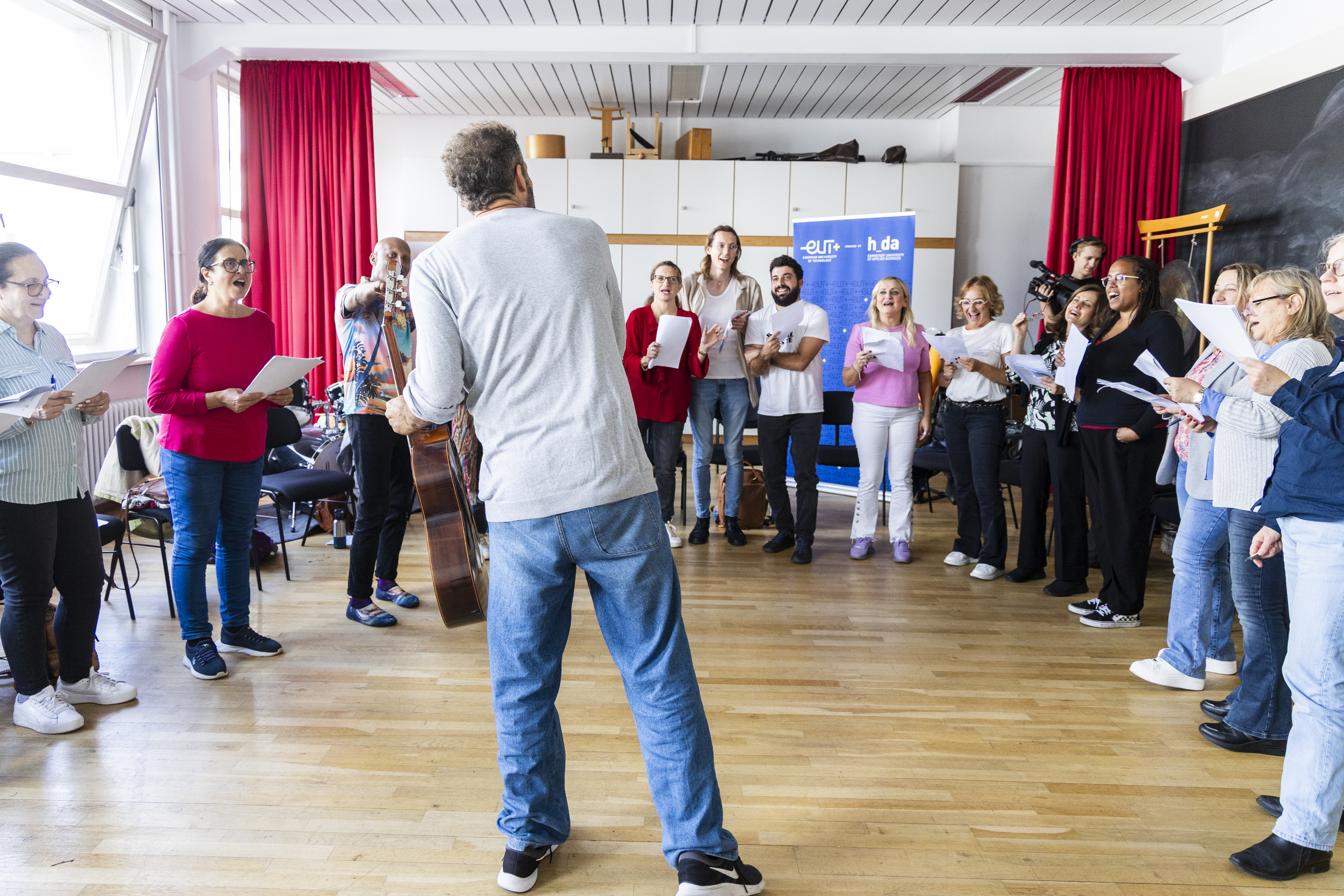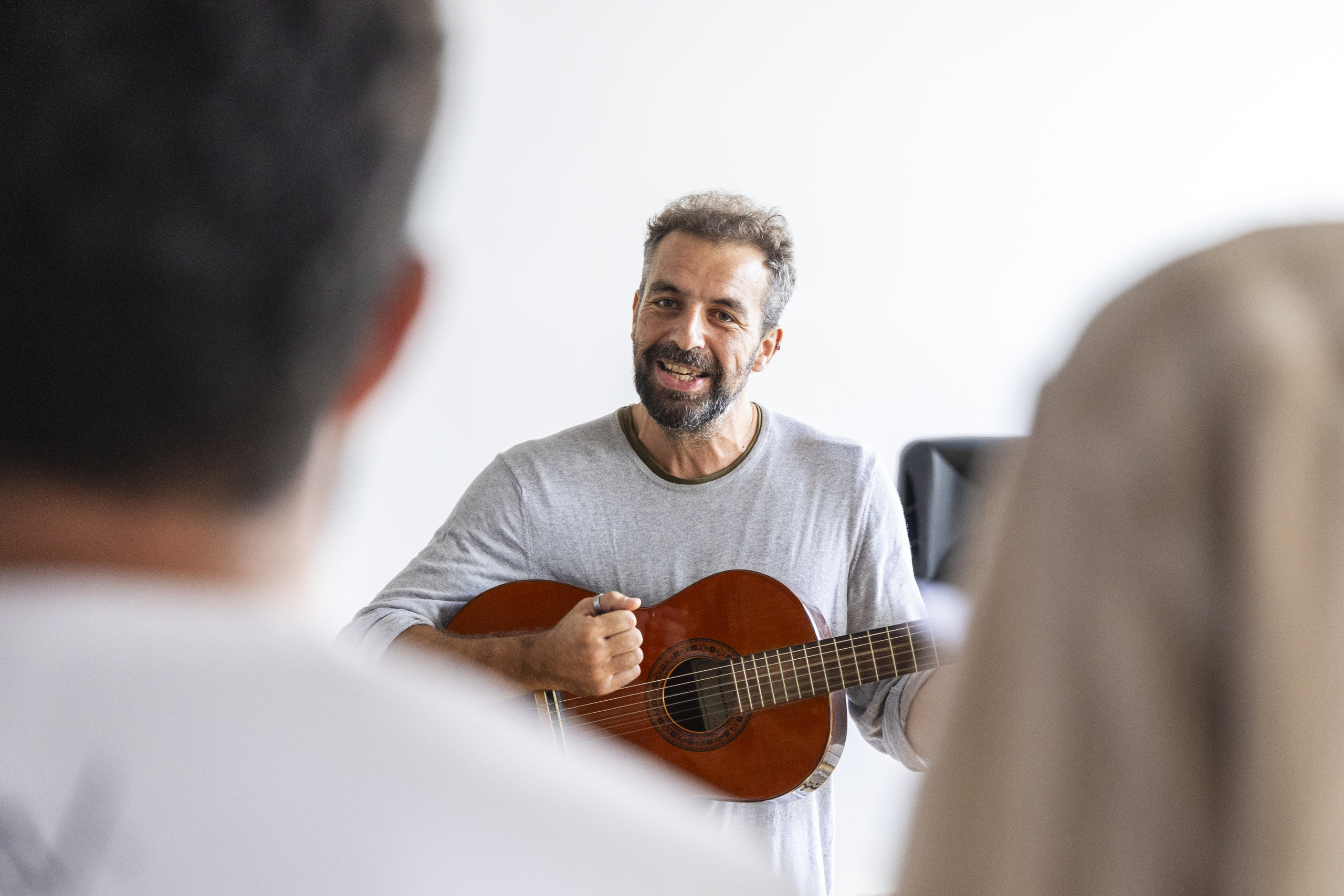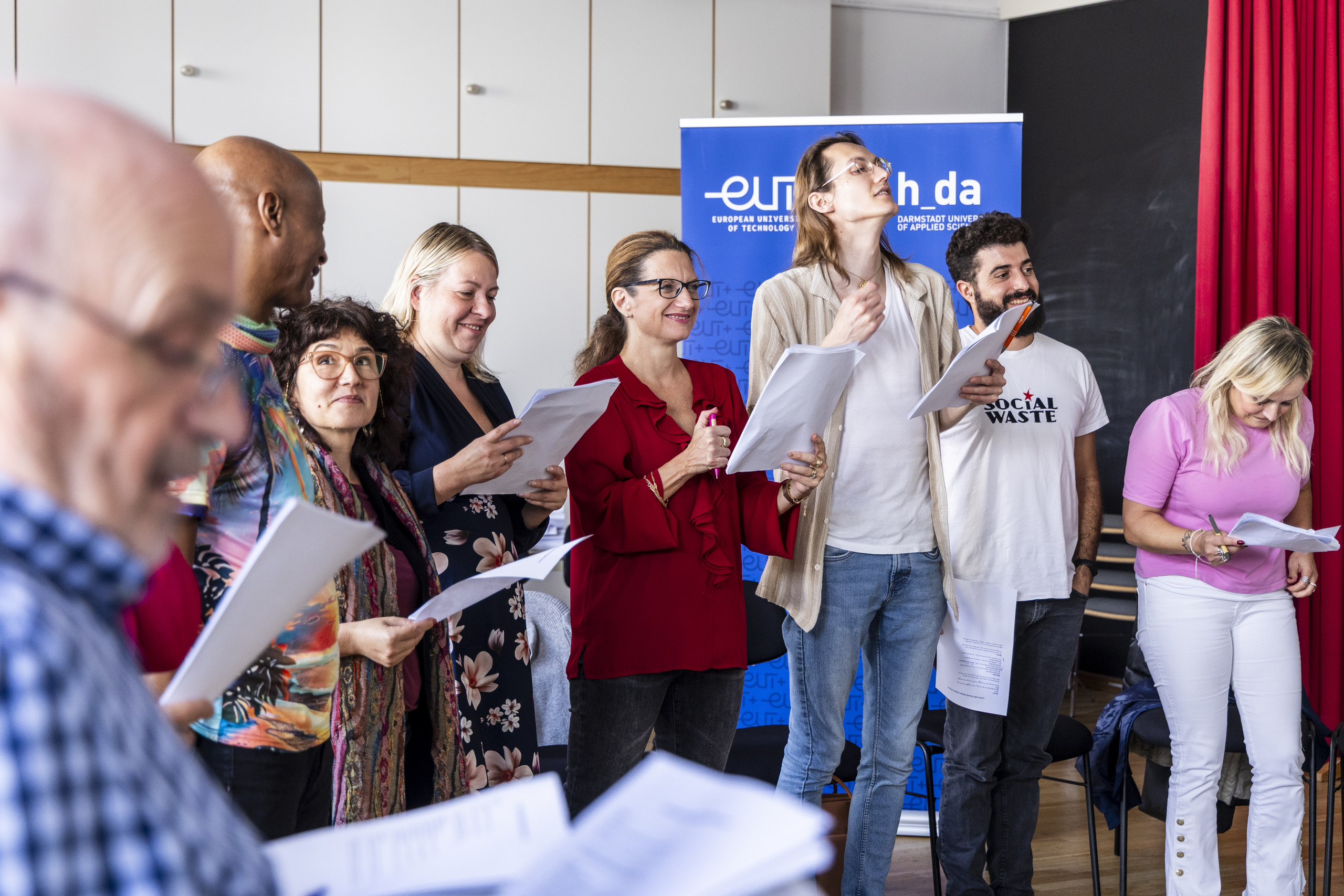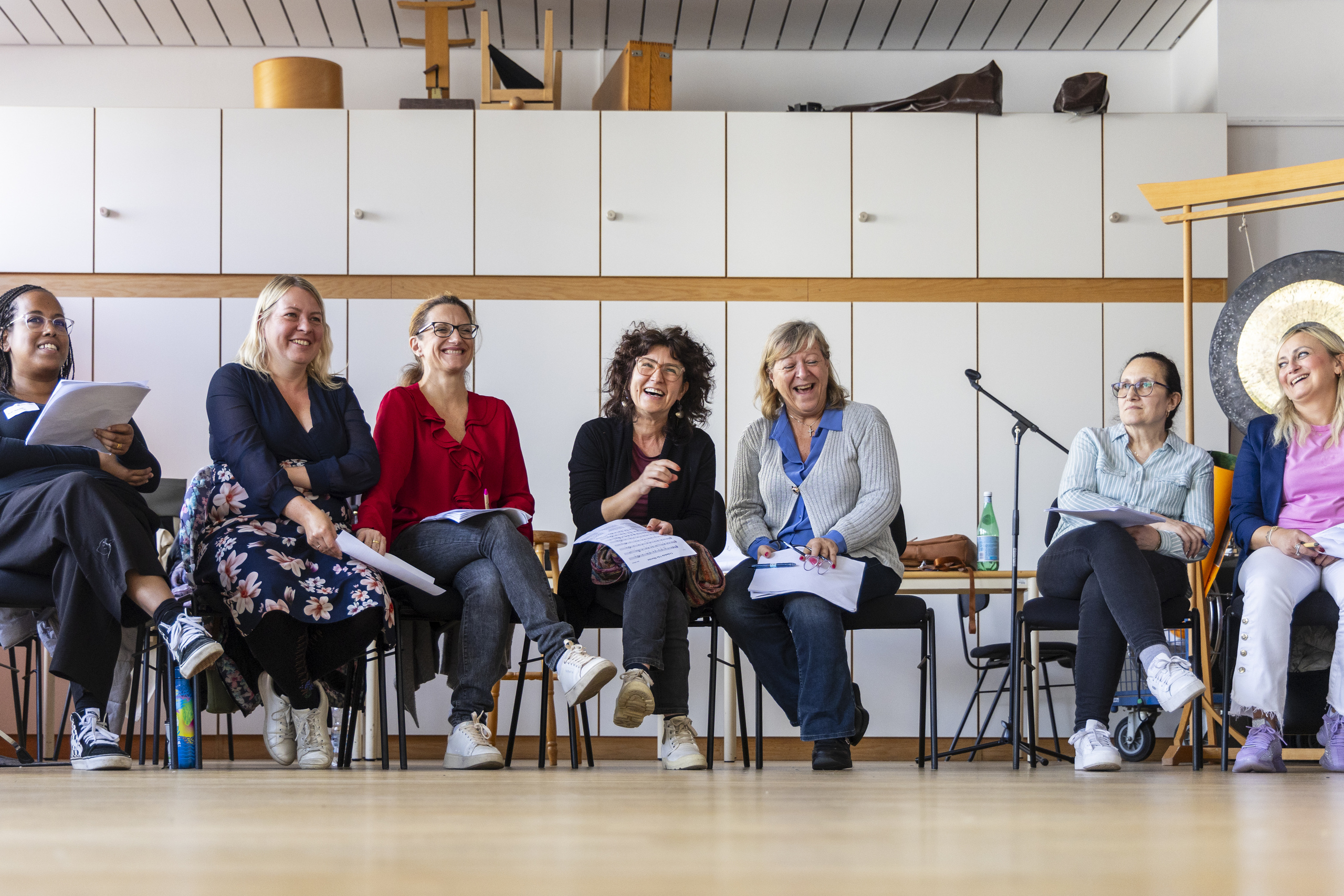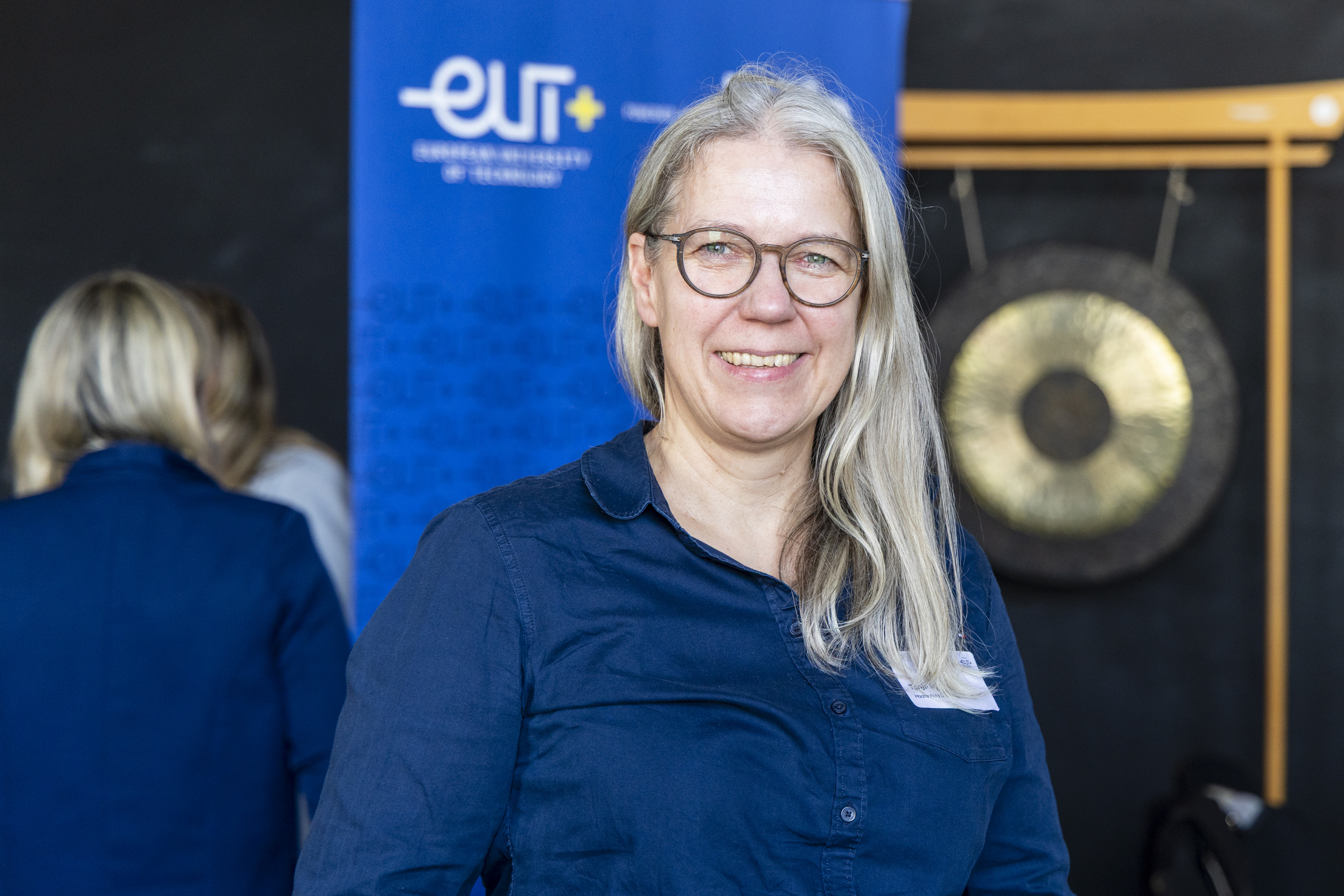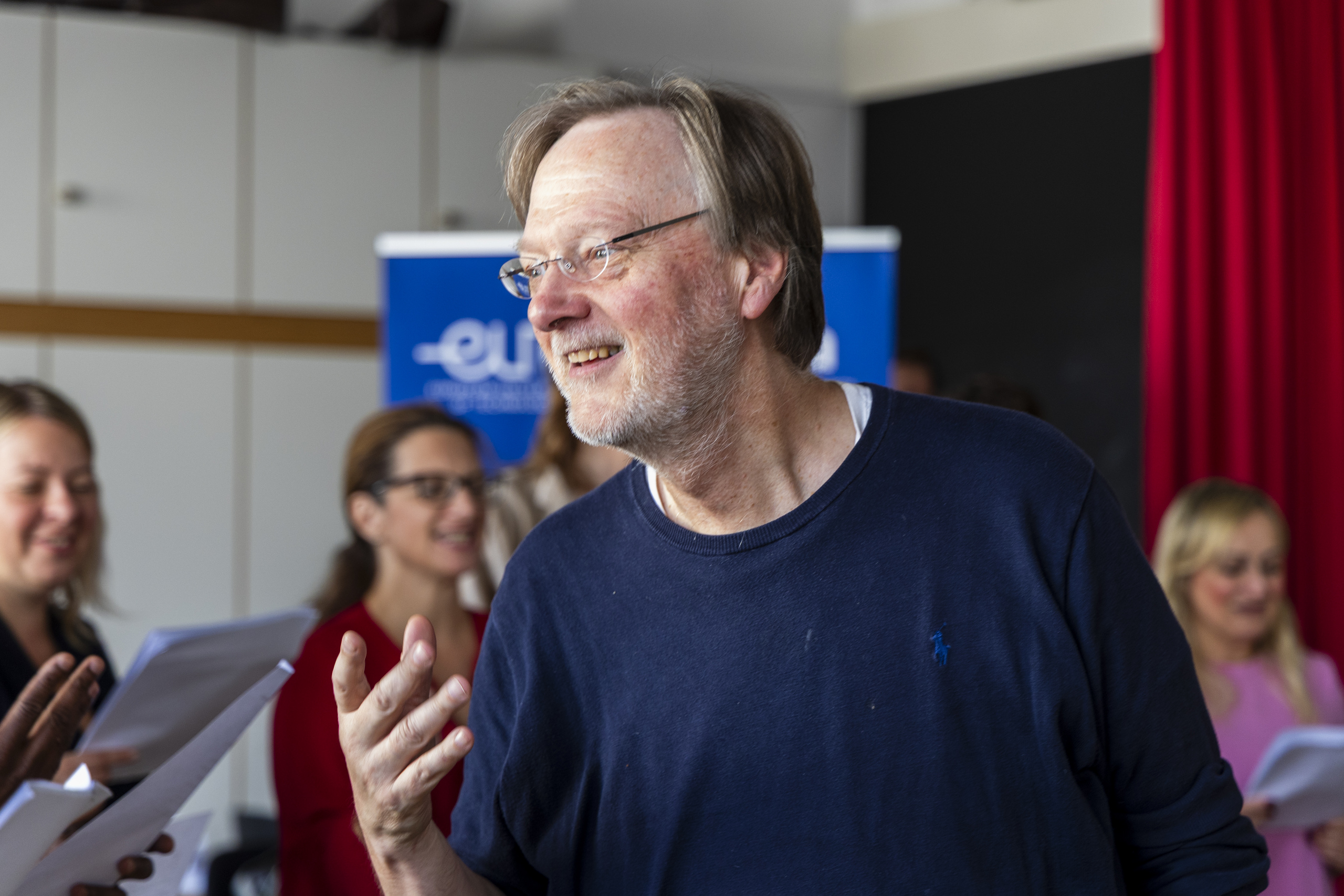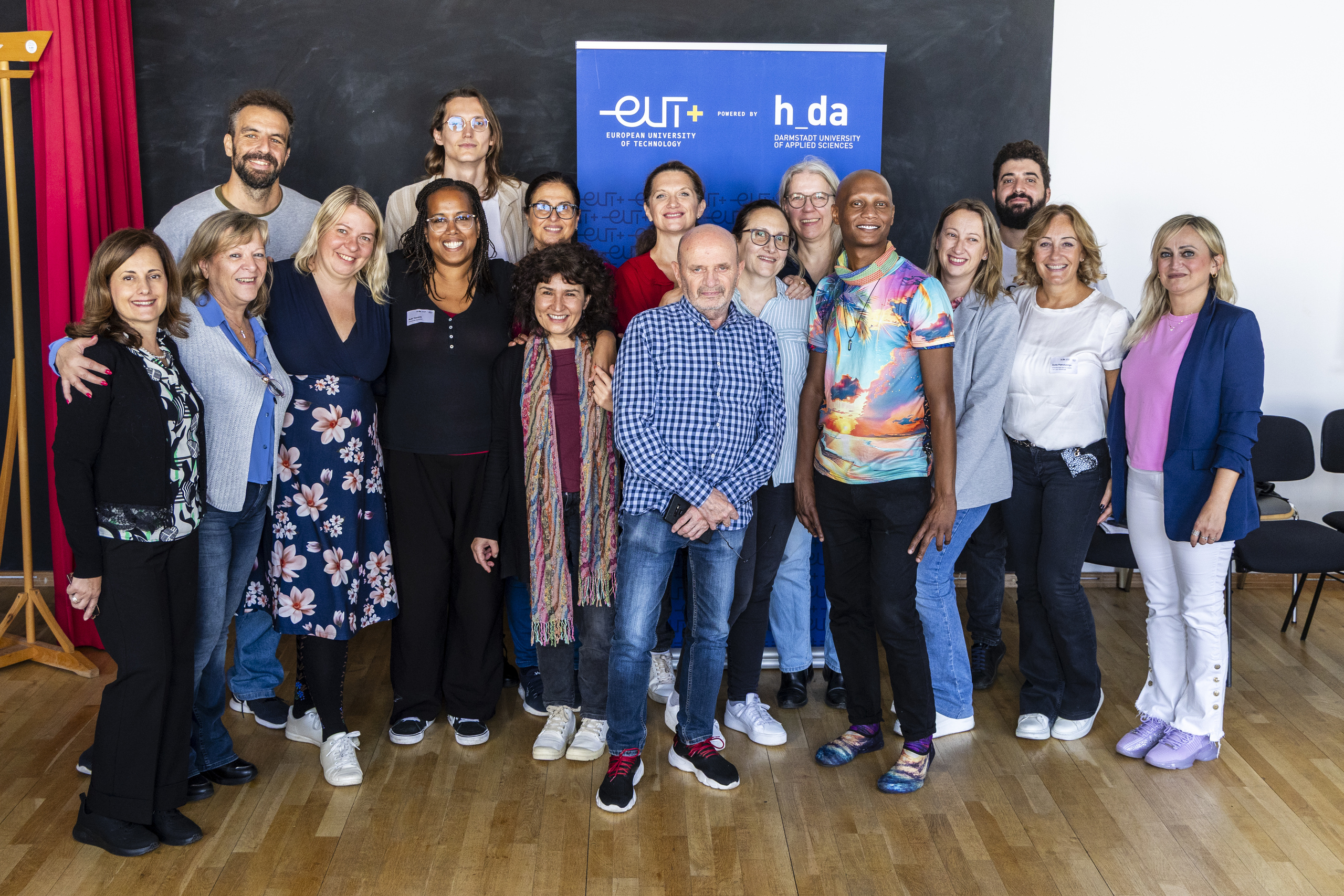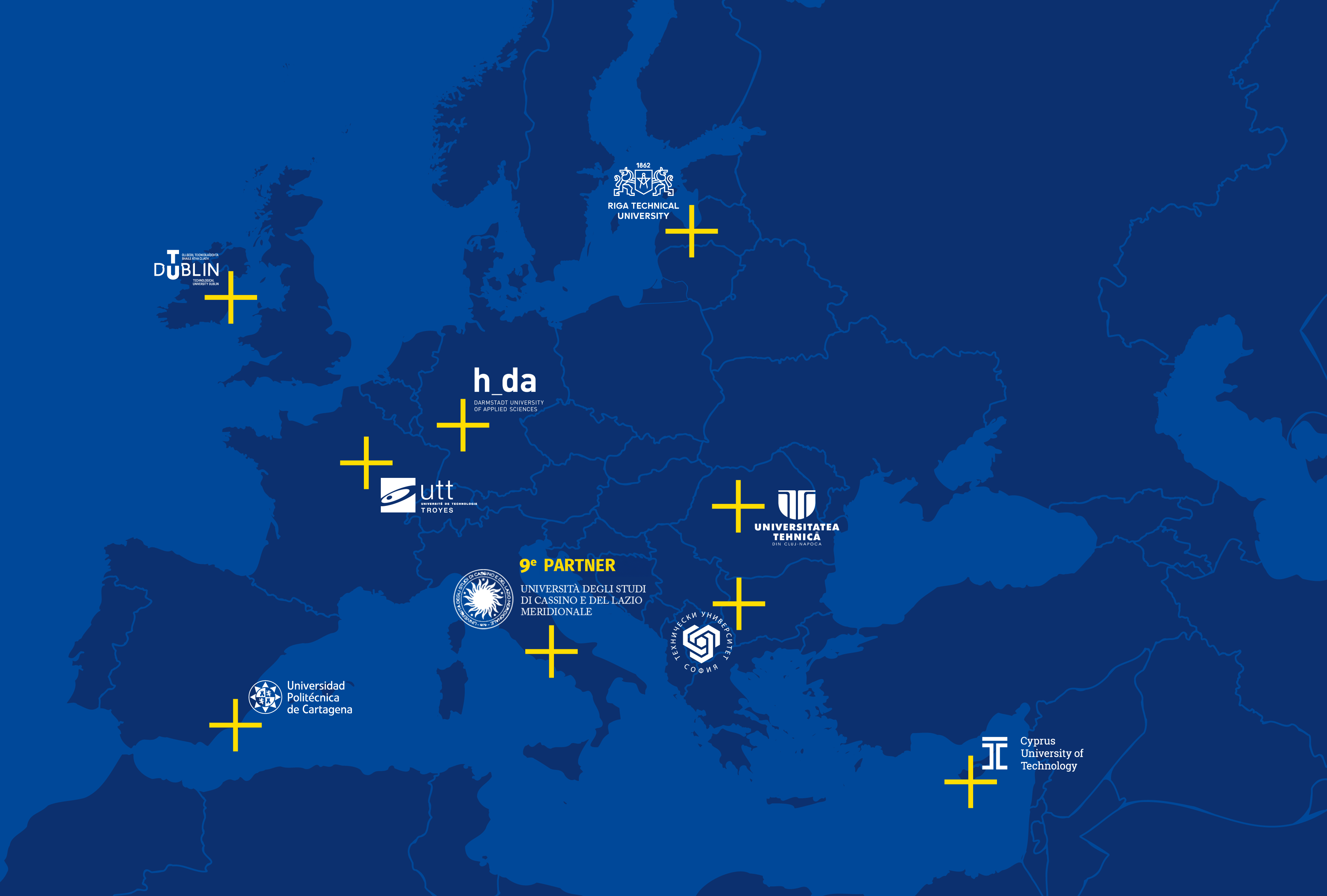How a music ensemble is strengthening cooperation

Coming together to sing and gain intercultural experience: that was the approach of a project week organised at Darmstadt University of Applied Sciences (h_da) for staff of the European partner universities in the EUT+ alliance. What fun it is to sing songs together without understanding the language! Another insight was that singing connects and motivates people – something that can also be put to professional use.
By Alexandra Welsch, 21.10.2025
Yiannis Christidis, a tall Cypriot guy with curly hair, taps the syllables on the floor with his right foot. He sings the first line of the chorus very slowly – “Mi-a fle-vi” – and continues to tap his foot. “Fle-vi-tsa a-mar-to-li.” It’s literally all Greek to the others, but they nevertheless try to sing along. There is still room for improvement, but also a lot of laughter and giggling, especially in between when Yiannis explains in English what the song means. “It’s a funny love song.” The beloved turns out to be a vampire that bites him in the neck. “Charming,” remarks one of the participants dryly. Everyone laughs, and then they join in again: “Mi-a fle-vi.”
Coming together to sing – and gain intercultural experience and tread new paths in the process: that was the approach of a project week for staff of h_da’s European partner universities in the EUT+ alliance (European University of Technology), the aim of which is to establish a cross-border European university. “Multilingual & multicultural learning – that is how EUT+ sounds like” was the title of the week in Darmstadt with 16 participants from partner universities in Cyprus, Bulgaria, Latvia, Italy, France and from h_da. Guests from Finland and Portugal also attended.
“Creative, inclusive and emotionally appealing”
“Building a common identity across borders, languages and academic cultures calls for new forms of collaboration – creative, inclusive and emotionally appealing,” explains Tanja Münch, initiator of the music project and Head of University Governance and Strategies at h_da. Singing together in different languages, she says, helps to break down barriers and build bridges. In this way, she adds, the project also supports “change management within the EUT+ alliance by strengthening the collaborative skills and intercultural competence of our staff.”
Already on the second day of the project week, it can be seen how, despite all the language barriers, a harmonious ensemble is evolving astonishingly quickly in the Music Room at h_da’s Faculty of Social Work. Just half an hour after the first warbled attempts at singing along in Greek, the “motley crew” stands together in a semicircle and sings the first verse and the chorus quite well. The Greek lyrics, in a universally simple melody, sounds delightful, voices have already started to soar a little, some participants sway to the beat, stepping from their left foot to their right. “Very nice,” praises choirmaster Jan Hansen, 63, who otherwise teaches Information Law at h_da. “It’s a learning process that gets a little better every time.”
Learning songs in foreign languages is a new experience for the choirmaster too. “But it’s not as difficult as I thought.” Project manager Tanja Münch, who joined in the singing throughout, agrees. “Everyone came together really quickly.” A group dynamic developed early on, she says, such as she has not experienced in other projects. She believes that this was facilitated by music and singing together. And adds: “It’s a means to an end,” because getting to know each other in a cultural setting is an important prerequisite for working well together. To create an inviting forum for encounters and exchange among the staff of the partner universities, she explains, the project approach had a consciously low threshold. “Projects often focus on an academic topic, which is mostly intellectual,” she notes. Singing, however, is something emotional and connective. “The language of music is international.”
“Learning how people from other countries approach things”
The participants, who communicate with each other in English, observe the same effect. “My very first encounter with the English language was via music,” recalls Rosella Tinaburri from the Language Centre at the University of Cassino, Italy. At the time, she really liked the U2 song “I Still Haven’t Found What I’m Looking For”, which inspired her to learn the language. During her week at h_da, she is getting to grips with songs from France, Bulgaria and Germany, each contributed by the participants. “It’s not just about language,” she thinks. “We’re learning how people from other countries approach things.” In her opinion, this has tremendous potential – for work too. Olga Malinkova from the International Office at Troyes University of Technology in France feels similarly. “What’s important is the opportunity to work together and follow a common path, even if we are all different.”
Further articles on EUT+ projects:
“A Peace and Democracy Project”: EUT+ students become members of the European Parliament for a day
“A Small Step for a Rover”: EUT+ and the European Space Agency (ESA)
“From Beer to Broccoli”: EUT+ students meet up in Darmstadt for a logistics project
Dealing with cultural idiosyncrasies was also part of the programme. After rehearsing five songs and recording them together with students from the accompanying “Sound, Music and Production” study programme on h_da’s Media Campus, on the last day the group takes a closer look at the songs as regards clichés. “Clichés” is the heading written on the whiteboard in a seminar room in Studierendenhaus, below which the participants have gathered their impressions. According to them, “Volare”, the catchy Italian tune, conveys a feeling of love and freedom, while the rhythm of the traditional German song “Hejo, spann den Wagen an” (“Hey Ho, Nobody Home”) makes them think of hard-working labourers.
Insights between “Volare” and “Hejo, spann den Wagen an”
But what creates these impressions, and what is behind these songs? Here, the participants gained interesting insights in a closing session with musicologist Silke Loettel-Forderer. According to her, the song “Volare” was released in 1958 in the context of post-war optimism and celebrates not only freedom but also exuberance and sensuality. “I’m Italian myself, but I didn’t know all this,” Alessandra d’Aquino Hilt is surprised to say, who as Head of the Language Centre at h_da also took part. On closer inspection, the group also learnt that the origins of the German folk song “Hejo, spann den Wagen an” lie in the English folk song “Hey Ho, Nobody Home”, which was sung by people who went from door to door begging. In Germany, however, it was adopted as a children’s and harvest song and, since the 1970s, it has become a protest song with new lyrics – “Wehrt euch, leistet Widerstand” (“Fight Back, Resist”).
“Don’t judge things outright, give them a little patience and time.” This was Markos Souropetsis’s takeaway from the session, and indeed from the whole week. He concludes that for him it was “a great experience.” It gave him some new ideas, new friends and perhaps even new collaborations. And this can also be transferred to the bigger picture of interculturality. “To understand others, I have to be open-minded,” points out Alessandra d’Aquino Hilt, whose background is linguistics. The objective of the EUT+ Staff Week, she explains, was for participants to take home a different outlook on the participating countries. In addition, reflecting on how others see things and on one’s own country fosters self-awareness.
Project manager Tanja Münch, who is passionate about singing, is certain that this played a decisive role: “When you sing together, you are one.” It creates a different foundation for encounter and exchange, she adds, and fosters understanding – even if you don’t speak the language. She says: “It’s challenging and great fun at the same time.” And it encourages spontaneity and a willingness to compromise, which can also be valuable in work processes. She is convinced: “What we are doing here is needed not only in EUT+ but also in Europe.” That is why she would like to build on it and continue to bring partners together through singing.
Contact our Editorial Team
Christina Janssen
Science Editor
University Communications
Tel.: +49.6151.533-60112
Email: christina.janssen@h-da.de
Translation: Sharon Oranski
Photography: Samira Schulz
EUT+ website: www.univ-tech.eu/
